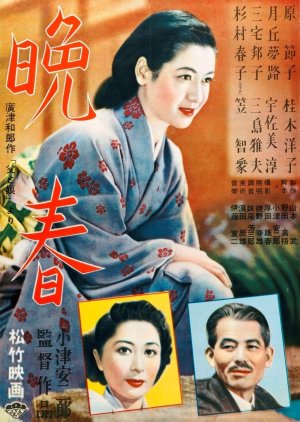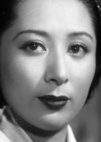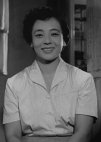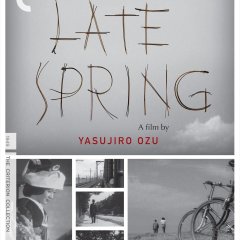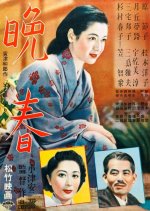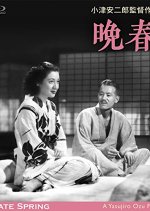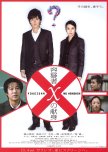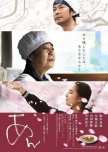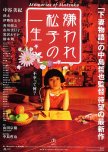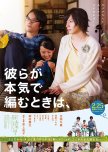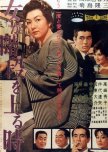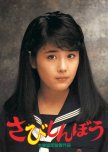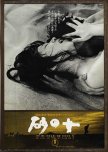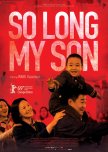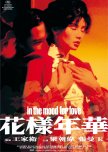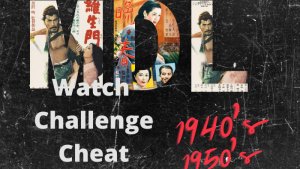 WCCS: Japanese movies from the 1940's and 1950's
WCCS: Japanese movies from the 1940's and 1950's Noriko is 27 years old and is still living with her father Somiya, a widower. Noriko just recovered from an illness she developed in the war, and now the important question pops up: when will Noriko start thinking about marriage? Everybody who is important in her life tries to talk her into it: her father, her aunt, a girlfriend. But Noriko doesn't want to get married, she seems extremely happy with her life. She wants to stay with her father to take care of him. After all, she knows best of his manners and peculiarities. But Noriko's aunt doesn't want to give up. She arranges a partner for her and thinks of a plan that will convince Noriko her father can be left alone. Edit Translation
- English
- magyar / magyar nyelv
- dansk
- Norsk
- Native Title: 晩春
- Also Known As: Banshun
- Screenwriter & Director: Ozu Yasujiro
- Screenwriter: Noda Kogo
- Genres: Historical, Life, Drama
Where to Watch Late Spring
Free (sub)
Cast & Credits
- Ryu Chishu Main Role
- Hara Setsuko Main Role
- Tsukioka YumejiKitagawa Aya [Noriko's friend]Support Role
- Sugimura HarukoTaguchi Masa [Noriko's aunt]Support Role
- Usami JunHattori Shoichi [Shukichi's assistant]Support Role
- Miyake KunikoMiwa AkikoSupport Role
Reviews

"Happiness comes only through effort"
Late Spring was the first film by director Ozu Yasujiro I ever watched. I had no idea who he was or anything about films from this era. For the most part, I was unimpressed. After watching Late Autumn which was a loose remake of Late Spring, I decided it was time to revisit one of Ozu’s classics.The plot is deceptively simple. Noriko is 27 years old and on the cusp of being too old for marriage. She and her widowed father have a comfortable relationship neither wants to change. It is an aunt who shakes things up by insisting on finding her a husband.
Ozu often focused on this transitional part of family life-a child on the verge of leaving and an aging parent facing loneliness. Noriko's familiar routine started to ebb away as her father came to terms with what was necessary for her future which begat sadness and grief. Noriko had become too much of a surrogate wife and needed to become a real wife with a real husband which would require her to leave the nest as children do. Her father recognized he would not always be around and the only way to protect her and secure her happiness was to marry her off.
Though the mother had died some time ago, her presence felt tangible. Noriko showed great jealousy when her father mentioned he might remarry. She felt men remarrying was “filthy” and “indecent”. Apparently, older people no longer required companionship and intimacy. Noriko seemed overly involved and attached to her father. “I’m the only one who knows what he needs.” Was she upset for her mother’s sake or her own? During a Noh performance, her feelings shown through when she saw the perspective woman was also attending. Ozu’s astounding ability created a deeply emotional scene simply by cutting back and forth between the characters’ reactions to each other and the performers. During another evolutionary moment as daughter and father were lying side by side, Ozu focused on a vase for long seconds as Noriko processed her emotions and gave the audience the same meditative chance.
Ozu’s skill and his ability to compose exquisite frames was, as always, impeccable. Where I struggled with Late Spring is what caused me to stumble last time---Hara Setsuko’s performance. Her overly bright smile for the first half of the movie could be disconcerting. Sometimes a smile hides a person’s pain and sometimes it hides a vacancy sign. Smiling while riding a bike and enjoying the moment seemed natural, smiling when taunting the professor for being “filthy” seemed strange. She is a much admired actress and while I have enjoyed some of her darker performances, too often she over-relied on her smile. The second half had her character behaving petulantly and pouting which seemed out of place for a grown woman who had survived forced labor during the war.
As a modern viewer these plots were uncomfortable and I had to continually remind myself this was 1949. A woman was basically sent from her father’s house to another man’s house with little say as there weren’t many other options available to her. Noriko’s father complained that daughters were pointless. “You raise them and they leave. If they don’t marry you worry and if they do you’re disappointed.” Noriko worried her father would be helpless without her. Modern me thinks her father would learn to pick up the clothes he casually dropped on the floor himself and pour his own glass of water while brushing his teeth.
Despite my reservations, Ozu knew how to incorporate the most basic concepts of life and make them interesting. Noriko’s father, expertly played by Ryu Chishu, grasped that loneliness and death were a part of life and he wanted his daughter’s future taken care of. The plot might have been simple but Ozu was a master of teasing out the buried emotional details of changing family relationships. I rated this higher than my first watch and perhaps in the future, I’ll appreciate it even more. The father’s speech to Noriko was memorable then and now, one of the strongest from any Ozu film I’ve seen and still holds true today.
“Happiness isn’t something you wait around for. It’s something you create for yourself.”
14 February 2024
Was this review helpful to you?

Letting go of an establish life to a new one can be a very scary experience. The time that this movie was set in it was not uncommon for arranged marriages to happen and often between people of different towns.
This show cases a splendid father-daughter relationship where both parties are so concerned for the other they dont realize they are actually just in a holding pattern with their lives.
The movie was acted really well with only one minor detail that may have only bothered me. The Main actresses smile throughout the entire movie just felt so fake. I understand it was supposed to portray a specific facade or mindset, but the actress didnt sell it. Other wise you believe this was a busy-body aunt with well intentions, The friend thats been there done that, and dad who just wants what is best for his little girl.
Mood music typical of the era and rewatch value low because the outcome is known.
Was this review helpful to you?
Recommendations
There have been no recommendations submitted. Be the first and add one.

